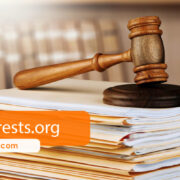Divorce is an extremely challenging time for many people, especially when the care of minor children is involved. Many divorces involve some type of custody arrangement. In most instances, the non-custodial father or mother is required to make child support payments by court order.
Table of Contents
Child Support Hearing
If the noncustodial parent isn’t making court-ordered child support payments to you, an experienced family lawyer will ask the court to petition them. You will both appear at a child support hearing. At that time, you will both agree on the amount of child support to be paid or the judge will then issue a new order concerning the child support payment to be made. Either way, the custodial parent will receive child support payments for the children.
If you were previously awarded child support that was ordered by the judge and properly filed with the court clerk, you must file a petition for the child support payments in arrears. An experienced family lawyer will file the petition so that the court holds the non-payer parent in contempt of court. They will be ordered to pay the child support payments at that time. If the noncustodial parent doesn’t pay child support in arrears, they face many penalties, e.g. jail time.
Garnishing Wages
Life can become uncomfortable for a parent who fails to pay child support. If the non-custodial parent fails to pay child support they may face wage garnishment. Their income from work may be withheld or their assets may be garnished. If they hold any licenses in the state, they may be suspended for failure to pay child support.
Moreover, the state government can withhold money from the nonpayer’s tax returns. While it may be difficult to find some nonpaying parents in arrears of child support payments, an experienced family lawyer will work hard to find them. For instance, if the nonpayer receives cash payments or takes a non-traditional job to avoid garnishment of their wages, all isn’t lost.
Child Support Payments in Arrears: Considerations
The custodial parent may have other legally-ordered options to obtain past-due child support payments from their former spouse, including:
• Withhold tax refunds from the federal or state government. These funds may then be used to pay child support.
• Seize property that belongs to the noncustodial parent, including home, car, or financial assets to be used to pay child support.
• Suspend the noncustodial parent’s occupational license, e.g. broker license, etc. They will find it difficult to work in their occupation without a valid license.
• Suspend the noncustodial parent’s business license, e.g. real estate license, etc. They will be unable to legally operate a business without this license.
• Revoke the delinquent parent’s driver’s license.
• Deny the issuance of a passport (through the U.S. Department of State) to the noncustodial parent if they owe more than $2,500 n past due child support.
It’s common for the custodial parent to try to communicate with the noncustodial parent who’s in arrears of child support payments. It’s very frustrating for the responsible parent to witness their former partner’s apparent lack of concern for the welfare of the children. Regardless of the situation, the custodial parent shouldn’t harass him or her. Don’t refuse the noncustodial parent’s visitation because you’re frustrated with the financial situation. The custodial parent could face serious penalties for preventing or thwarting the noncustodial parent’s visitation rights.
As you can see, the family court is the best place to settle the matter of past-due child support payments. Never attempt to take matters into your own hands.
The Child Support Enforcement Act of 1984
The Child Support Enforcement Act of 1984 allows you to go after a noncustodial parent who refuses to pay child support. Family or federal courts want what’s in the child’s best interests. If your former spouse refuses to follow court-ordered child support payment instructions, they may face jail time. They won’t be able to earn money in jail, so this is always the last resort.
Even if the noncustodial parent leaves the state, the Uniform Interstate Family Support Act assists in enforcing payments owed for the support of your child. The Child Support Recovery Act of 1992 says it’s a federal crime if the noncustodial parent doesn’t pay child support to the custodial parent in another state. The Deadbeat Parents Punishment Act of 1998 also makes failure to pay child support a criminal act.









Comments